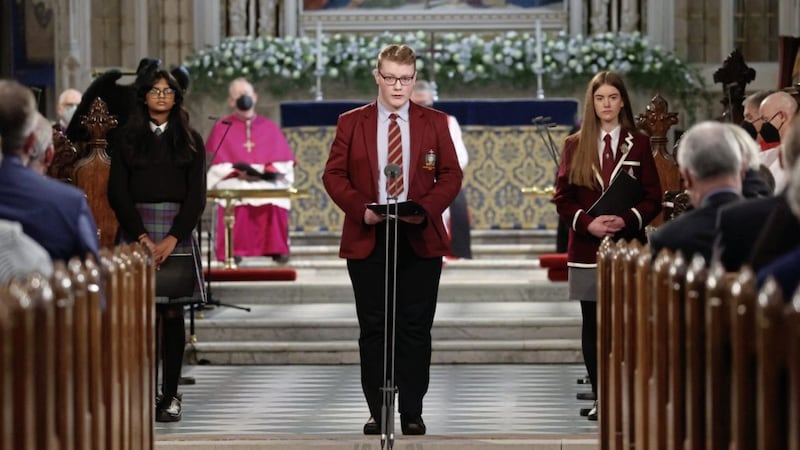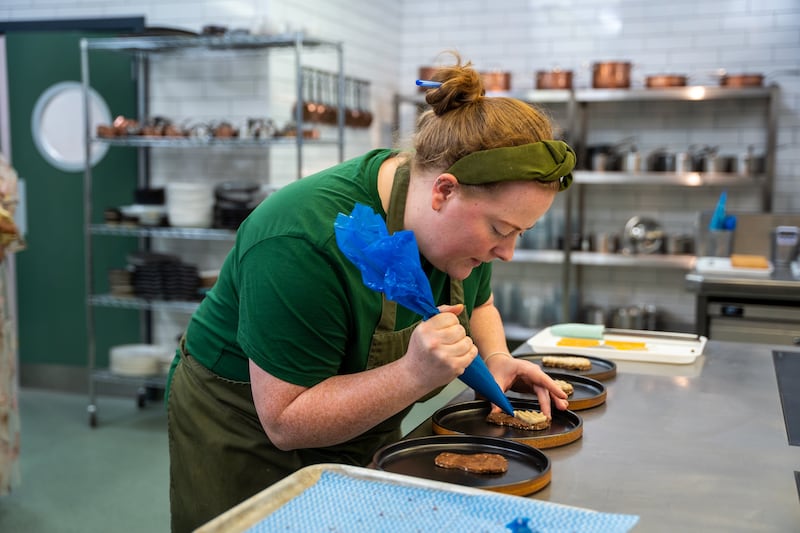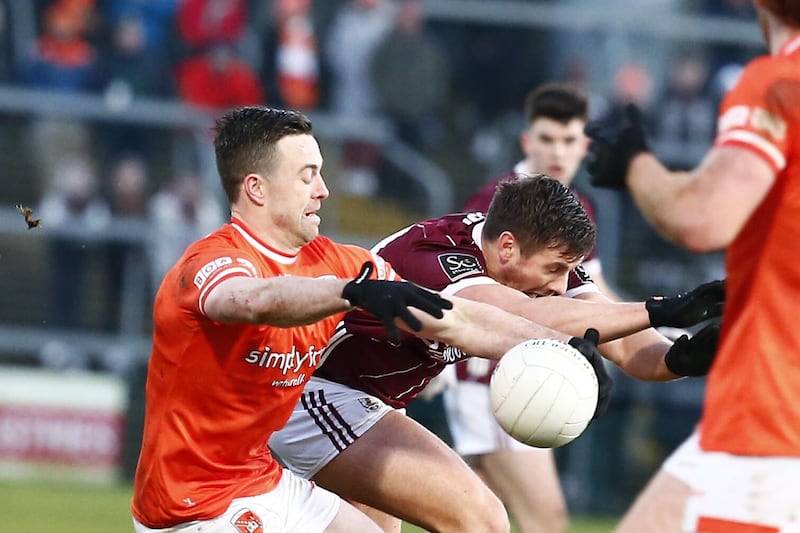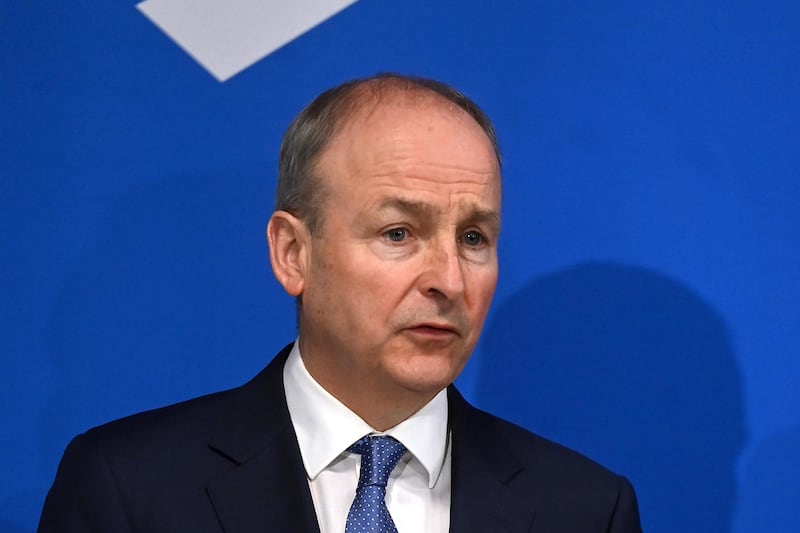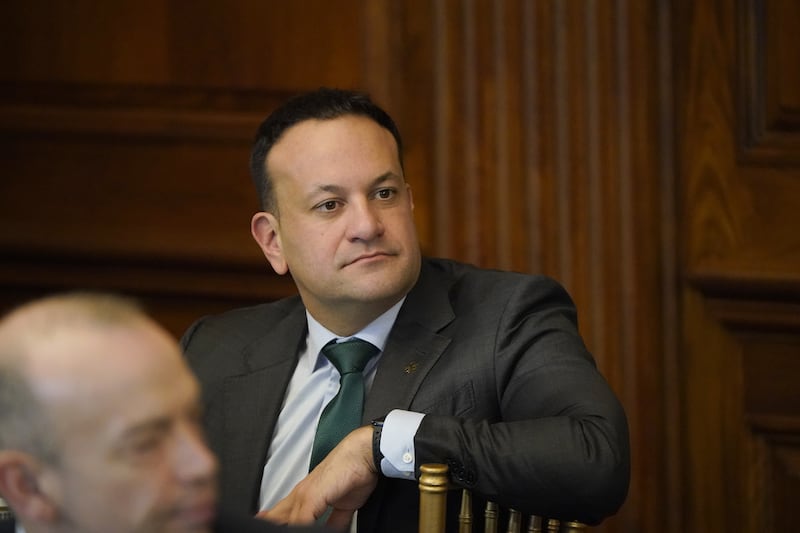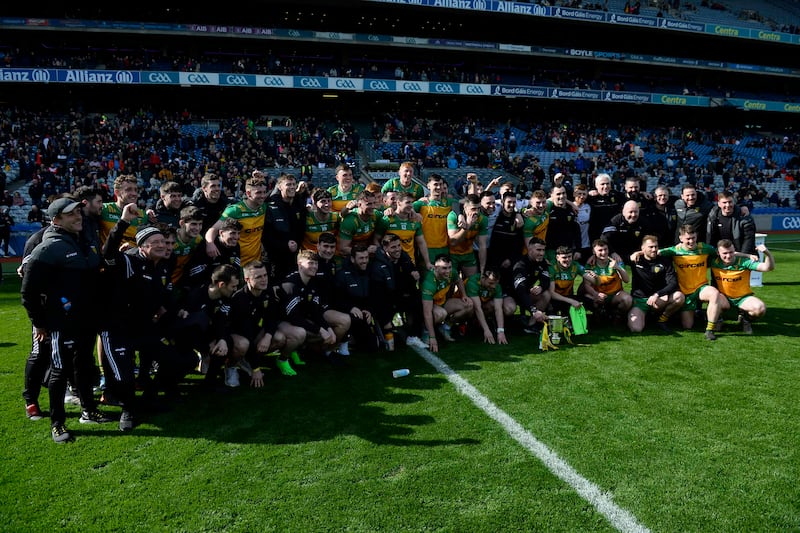THERE'S a story - possibly apocryphal - that Archbishop Richard Robinson, the far-sighted Church of Ireland prelate largely responsible for Armagh's celebrated Georgian architecture, predicted a future where kings and queens would visit the city in "flying machines".
Yet ahead of yesterday's centenary church service - held in the cathedral Robinson restored and in which he is buried - the talk was of the dignitaries who wouldn't be making a flying visit.
By now, the decision by Michael D. Higgins to decline the invitation from the leaders of Ireland's main Churches has been repeatedly - and indeed repetitively - dissected. Queen Elizabeth's withdrawal was so last-minute that her name remained in the printed programme; 'reluctantly accepted' medical advice has, however, seldom been so diplomatic.
Some of the narrative that sprang up around President Higgins's decision not to attend a major civic event in Armagh - instead clearing his diary to host the Statistical and Social Inquiry of Ireland at Áras an Uachtaráin - tended to suggest that the church service was going to be some sort of red, white and blue jamboree, three cheers for partition and a paean to the orange state.
Perhaps such events have been organised, but yesterday's was not one of them.
Instead, it was a sober, thoughtful lament. If this was meant to be a celebration, I'd hate to see the wake.
"I have to face the difficult truth that perhaps we in the Churches could have done more to deepen our understanding of each other and to bring healing and peace to our divided and wounded communities," said Catholic Archbishop of Armagh Eamon Martin, setting the tone in the first mea culpa.
The first mention of "Northern Ireland" during the service came from Presbyterian Moderator Dr David Bruce, recalling how, at various points in his life, his father "considered leaving Northern Ireland".
"Northern Ireland is my home too, and I love it," he said.
"But I lament the physical and emotional pain which has been caused over this last century to so many people by violence and the words which lead to violence."
The carefully-constructed title of the event - albeit apparently not careful enough for President Higgins - was 'A Service of Reflection and Hope to mark the centenary of the partition of Ireland and formation of Northern Ireland'.
And amid all the honest reflection on the not-so-glorious past there were dazzling shafts of hopeful light, courtesy of the participation of children and teenagers from across Ireland - confident, articulate, composed and challenging.
One, 14-year-old Sean McCourt-Kelly, spoke of a hopeful vision of the future that majored on educational opportunities and health. "There's so much more that can be done," he said, speaking truth to power as he addressed a congregation that included a prime minister, foreign affairs minister and a clutch of Stormont party leaders.
In looking back as well as into the future, the service didn't allow itself to dwell on the here and now.
Perhaps that's just as well, for it's a depressing vista. Bickering and administrative inertia at Stormont. A prime minister and secretary of state pushing through a Troubles amnesty. The DUP stymieing north-south cooperation. And so on.
It's clear that better relations are essential at Stormont - and beyond - if the rancour that characterises our past and present isn't to tighten its grip on the future. As Methodist President Dr Sahr Yambasu said in his sermon, echoing what he wrote in the Irish News last week, we need more "choosing relationship over being right".
After the service, a reception was held in the magnificent Robinson Library, where a Greek inscription over the door means "the healing place of the soul".
Who knows if any souls were healed as a result of yesterday's service and the events surrounding it. But it will have been an opportunity missed if it doesn't yield any soul searching about the past, present and future of this 'shared home place'.
